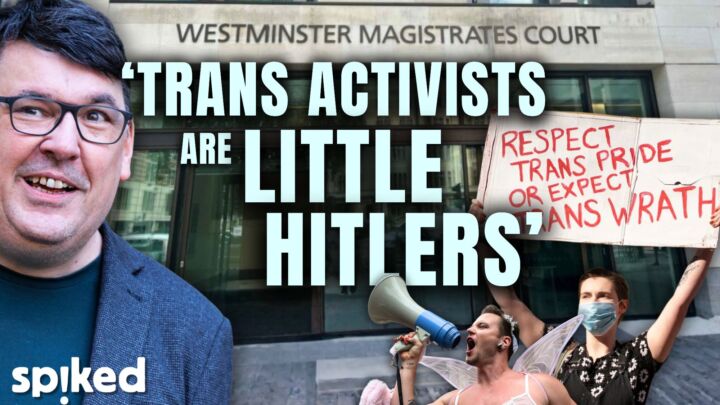Drinking while pregnant should not be criminalised

Want unlimited, ad-free access? Become a spiked supporter.
Last week, The Sunday Times reported that lawyers, acting on behalf of a local authority in England, were attempting to obtain compensation from the Criminal Injuries Compensation Scheme in respect of a brain-damaged child. In order to get compensation, the local authority must convince the court that a crime has been committed. In this case, the authorities are alleging that by drinking alcohol during pregnancy, the child’s mother was effectively ‘poisoning’ her child. If the six-year-old girl in question, who is now in foster care, is deemed to be the victim of this ‘crime’, it could set a precedent by which mothers who persist in drinking alcohol during pregnancy would be liable to prosecution.
This case is the logical consequence of a growing panic about the effects of pregnant women drinking alcohol. In recent years, this concern has grown so large that women who are pregnant, or even considering becoming pregnant, are now advised by officialdom to abstain from alcohol completely. But what is actually known about the detrimental effects of drinking during pregnancy? Much less than one might think, it turns out.
While there have been a number of attempts to try and establish a cause-and-effect relationship between low-to-moderate drinking in pregnancy and adverse outcomes, no clear evidence has been found. Indeed, studies have found the opposite: children of mothers who drank did better in certain tests.
Even the effects of heavy drinking in pregnancy are not completely understood. The condition known as Fetal Alcohol Syndrome (FAS) comprises retarded pre- or post-natal growth, specific facial abnormalities, and intellectual impairment, and is observed in babies born to alcoholic women. However, while FAS has been associated with very heavy drinking in pregnancy, it does not occur in all babies born to alcoholic women. Indeed, US scholar Elizabeth Armstrong has pointed out that nutrition and poverty may play a much more significant role than alcohol in the development of FAS.
Society has a responsibility to care for and assist children born with disabilities. To imagine the best way to do this is by inventing new crimes, allegedly committed by pregnant women, is reprehensible. It implies that when children are born disabled, society as whole, and local authorities in particular, can wash its hands of helping and instead look to blame the mother.
This case could set a precedent for the literal policing of pregnant women – and should be fought at every turn.
Dr Ellie Lee is a reader in social policy at the University of Kent, director of the Centre for Parenting Culture Studies (CPCS), and co-author of the forthcoming Palgrave book, Parenting Culture Studies.
You’ve read 3 free articles this month.
Support spiked and get unlimited access.
Support spiked – £1 a month for 3 months
spiked is funded by readers like you. Only 0.1% of regular readers currently support us. If just 1% did, we could grow our team and step up the fight for free speech and democracy.
Become a spiked supporter and enjoy unlimited, ad-free access, bonus content and exclusive events – while helping to keep independent journalism alive.
———————————————————————————————————————————–
Exclusive January offer: join today for £1 a month for 3 months. Then £5 a month, cancel anytime.
———————————————————————————————————————————–
Monthly support makes the biggest difference. Thank you.





Comments
Want to join the conversation?
Only spiked supporters and patrons, who donate regularly to us, can comment on our articles.